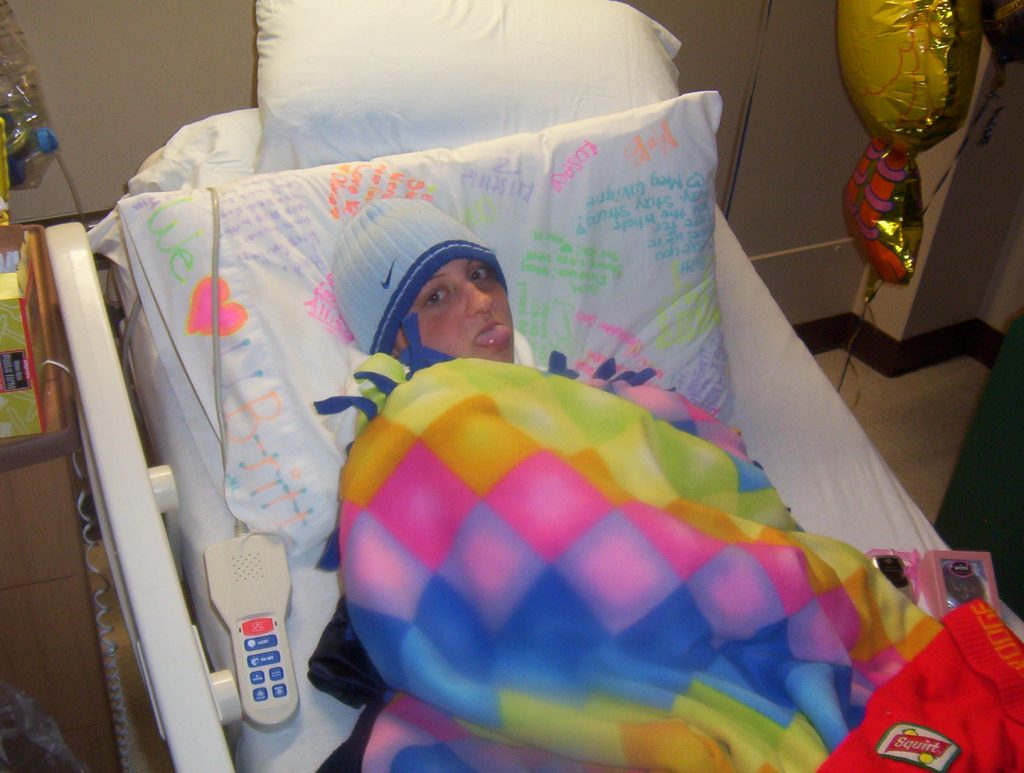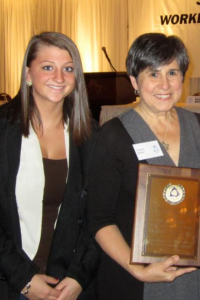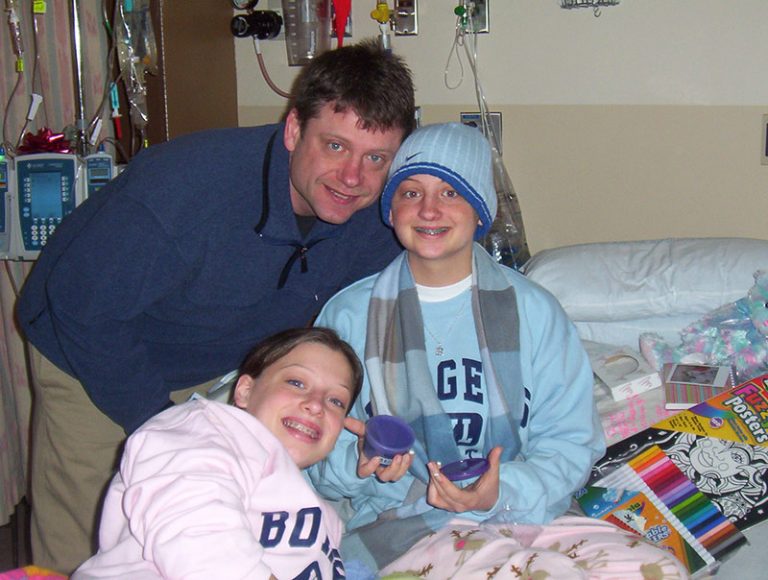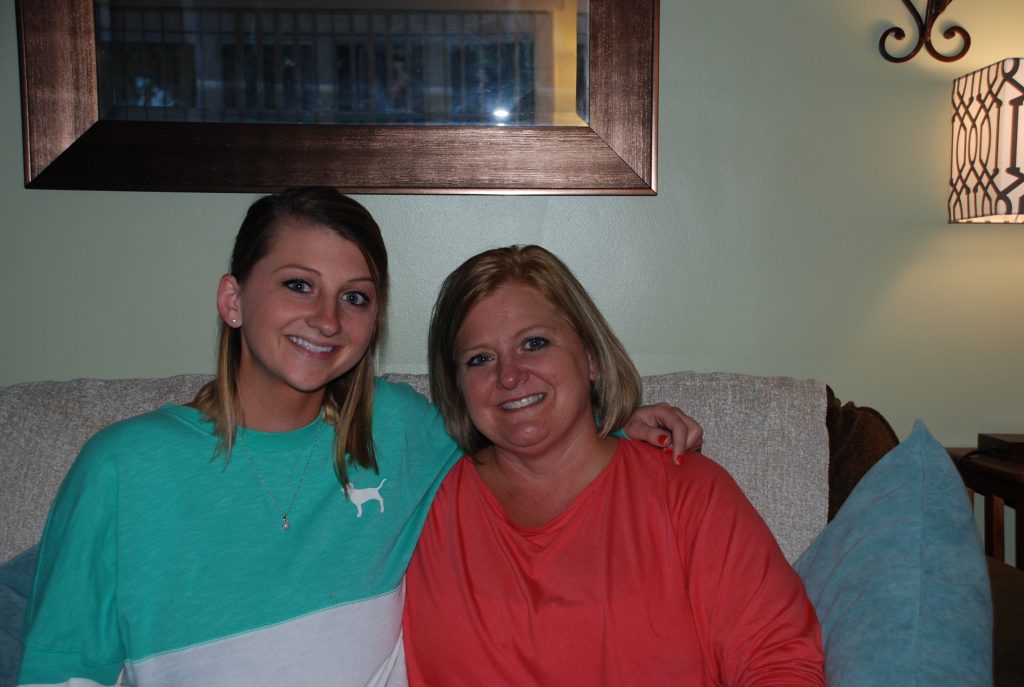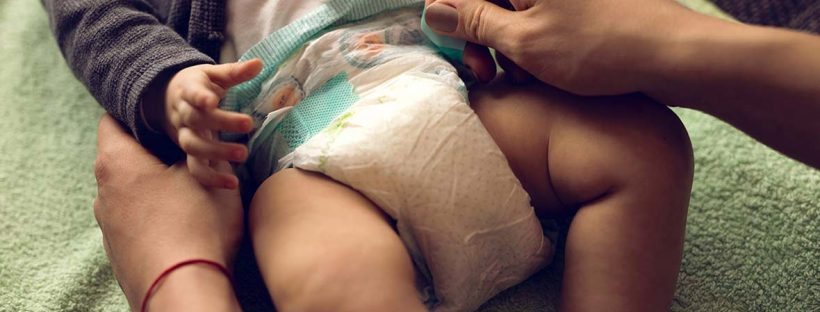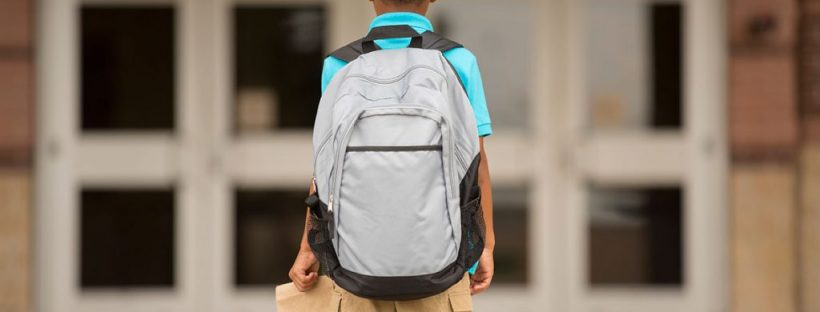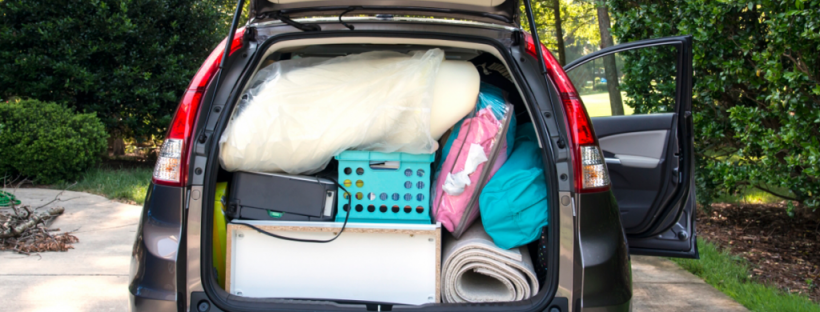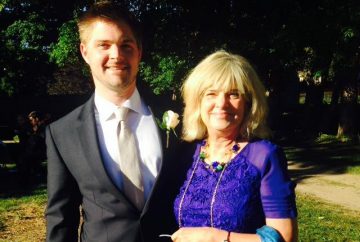“What are you guys waiting for?” That’s the question friends and family would ask every year at my son’s birthday parties.
Little did everyone know that we’d been struggling for years to have our second child.
Our struggle to conceive has been fraught with doubt and disappointment. But for the first time, I’m also feeling hopeful.
Just relax? Yeah, you try that.
So many people – from my obstetrician (OB) to friends and family alike – would suggest “just relaxing” or “try not to think about it.” I now know that’s the worst advice you can give anyone in these situations. (If you are looking for ways to help friends and family struggling with infertility, or even looking for different ways to start a family, visit Resolve.org.)
Even still, we tried, took dozens of pills and injections, had seven surgeries and procedures, removed grains and dairy from my diet, and still suffered two miscarriages, all of which made us feel very alone and anything but relaxed. My body, our minds, and our finances were drained.
Meanwhile friends and family lapped us – having one or two more children to our zero. Trust me, it was not a competition, but you can imagine how defeated we’d feel when we knew we too were once able to just get pregnant on our own. But for some reason, this second child wasn’t going to be as easy.
I celebrated each friend or family member’s new baby as best I could – always with a smile and hope. I never wanted to get on the other side of my situation and have people reflect on how hard it has been for me. I wanted to make sure I was there for them, too- with a positive spirit.
IVF: Not for the faint of heart
After six intrauterine inseminations (IUIs) – two of which resulted in miscarriages – we decided to try In Vitro Fertilization (IVF).
The process is not for the faint of heart, but I am grateful to the support group/yoga class I’d been attending for nearly two years. These women have seen it all and dropped everything to help a newbie. Each time I spoke with them, I felt less alone, more hopeful, more comfortable being the person I had to be.
Our IVF protocol was a rigorous one. At this point I’m 39 years old, so my “advanced maternal age” wasn’t necessarily increasing my chances of getting pregnant again. I was bruised mentally from negative pregnancy tests and pregnancy losses, and physically from the injections and blood work.
The mental bruises take a long time to go away. The bruises make you doubt that you’ll actually get pregnant, a skepticism that those “just relax” advisors would yell at you for. Those who’ve done this already know, it’s a doubt you can’t get rid of – but you do have to tuck it away in a remote location of your mind. I carried the doubt, but tried so hard not to let it consume me. I realized that two years later we were smarter, trying new things each time, and each attempt was different. So I forced myself not to ask, “Why should this time be different?”
We’re pregnant! Hooray, right? Well….
In January 2016, we began prepping for our first retrieval.
By now I was used to the fatigue that comes with constantly running to appointments, juggling prescription refills and approvals, and the general malaise that the injections caused my body.
February’s retrieval came and went. I was almost in auto pilot mode because in the back of my mind, I was more terrified of the next step to come – the transfer.
Because of the intense protocol I signed us up for, we didn’t transfer until April. When April came, I felt like I was stuck in one those dreams I used to have about my college exams: the dream where I prepared for the exam, but then showed up for a test that I knew nothing about, and had to wing it. That’s kind of like the IVF experience. You can prep all you want, but it’s really up to science.
After our transfer, we waited and kept ourselves distracted with other things. Over the years we’d been doing this, I became a fan of distractions – anything to not dwell on the one thing we cannot control. We’d take day trips, have fun dinners, just play with our son, or I’d immerse myself in my work.
All along there’d been yoga – every morning I get up and practice solo for about 20 to 30 minutes to organize my body and my head.
Then on May 4th we got our phone call – we were pregnant. Hooray right? Well…
I couldn’t get excited about being pregnant
As soon as we got our positive blood test, I moved on. I did not get excited.
I said, “Great, see you at next week’s appointment.” We kept the faith, but realistically kept moving on with our lives. This was ironic because I once dreamed of the day we’d get our “get out of jail card” and become pregnant again.
I imagined we’d be ecstatic, able to embrace this joyful moment and be happy. But because of our past emotional experiences, I just couldn’t put myself in that mindset.
With each week and each check-up, we got great reports. Numbers were great and we had a strong heartbeat – all great signs and things we hadn’t seen with past positive tests.
But I just couldn’t let myself enjoy being pregnant. With this technically being my fourth pregnancy, my body was changing fast. I was cramming myself into my normal clothes at eight weeks of pregnancy because I didn’t want to “jinx” us by wearing maternity clothes.
Worse was that I would dread going to the bathroom because there was always that chance that blood would show up, a sign that I might be miscarrying again. There were times I would cry myself to sleep for fear that a normal stomachache was something worse. Or I would spend days at my desk hiding from people so they couldn’t see the fatigue and bloat, or ask questions I didn’t want to answer.
Somehow, one day after one of our last appointments with our fertility team, I actually stopped thinking about the fear of losing this pregnancy. I let it go. I decided I could move on, and try to enjoy the experience.
Then it happened. I was bleeding.
Learning to have faith
I was paralyzed with fear and anger. My first thought wasn’t what most rational women would say (“oh, it’s probably nothing”). My first reaction was to punish myself for being hopeful – “look at that, you let down your guard and you ruined it.”
I believe that IVF post-traumatic stress disorder (PTSD) is a real thing. (Though this is not a clinical diagnosis for me specifically, it’s a sentiment or a feeling of loss of security or safety, and that trauma of loss or negative results will continue to occur for me.)
We hurried to the doctor and confirmed that everything was still a-ok. Heartbeat, sac, even limbs were all still there. I most likely had subchorionic bleeding, which can be scary, but is common early in pregnancy and doesn’t normally indicate that the pregnancy is at risk.
Ironically, after that incident, I had more faith and confidence in myself and in this little human who is growing inside me. I learned that not everything is what we think it is every time. And perhaps it was a test to show me that it is OK to let my guard down.
I’d be a liar if I told you that, at nine weeks pregnant and experiencing bleeding, I was thrilled and relieved. My growing confidence allowed me to celebrate this little human in quiet prayer and yoga every day. But it wasn’t until I reached almost 21-weeks of pregnancy that I started to relax and enjoy the miracle of my pregnancy.
With peace of mind, comes joy
Until experiences showed me that I was not going to have another disappointment, I felt I had to protect myself emotionally and physically. So I went on “auto pilot” for about 13 more weeks. I got up, got dressed, fed my family, drank my decaf coffee, went to work, and went to bed. I worked hard to avoid thinking about being pregnant – and to my family it came off as a negative attitude. What was hard for them to understand was that I had to build up a shell, that I was just using all of my energy to breathe and keep functioning, leaving no energy to enjoy life for the moment.
While the fear has gotten quieter, it honestly hasn’t gone away. As I near the end of my pregnancy, I know that until I hold this human in my arms, I won’t fully let my guard down. With each passing week, it does get easier. After ultrasounds and check-ups, after seeing our little girl, her cute profile and all of her organs, I finally have some peace of mind. With peace comes joy. And with joy comes space to smile, laugh, and enjoy some of life. Because life will keep going, this baby will keep growing, and I can keep breathing.
Update: My healthy, beautiful daughter was born in late December 2016. We stare at her in complete disbelief and happiness.
Notes: This narrative was motivated and inspired by Amy Klein’s blog post on the New York Times “Motherlode.” In this amazing post, Ms. Klein introduces the concept of PTSD for fertility patients. http://parenting.blogs.nytimes.com/2015/03/17/after-i-v-f-pregnant-but-still-stuck-in-the-past/
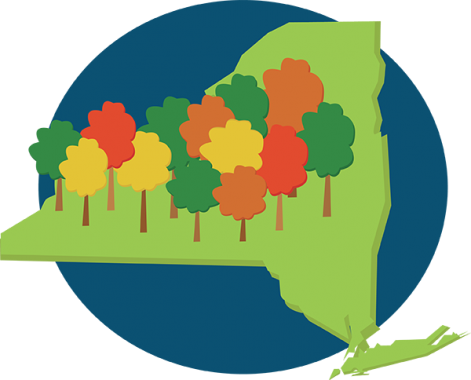



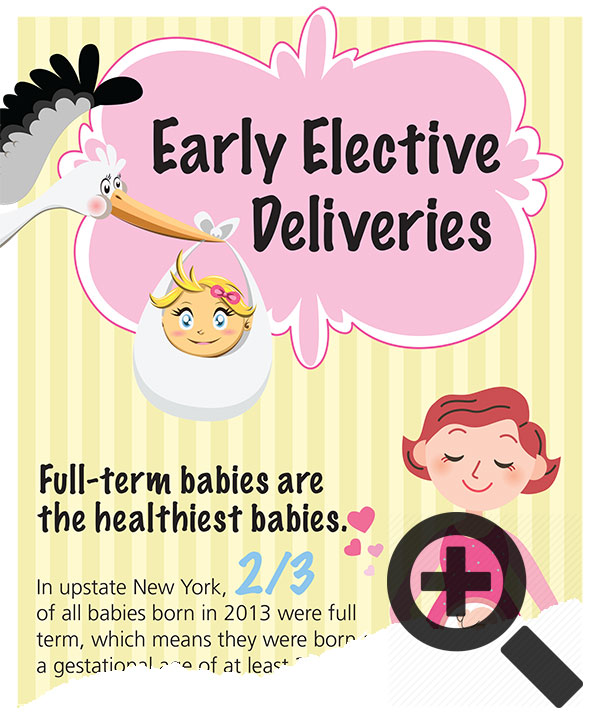
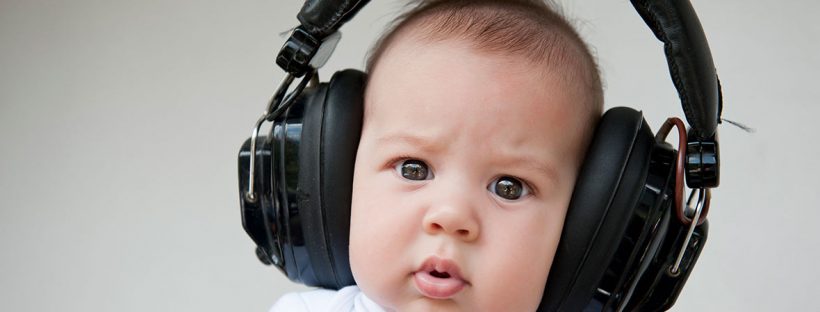
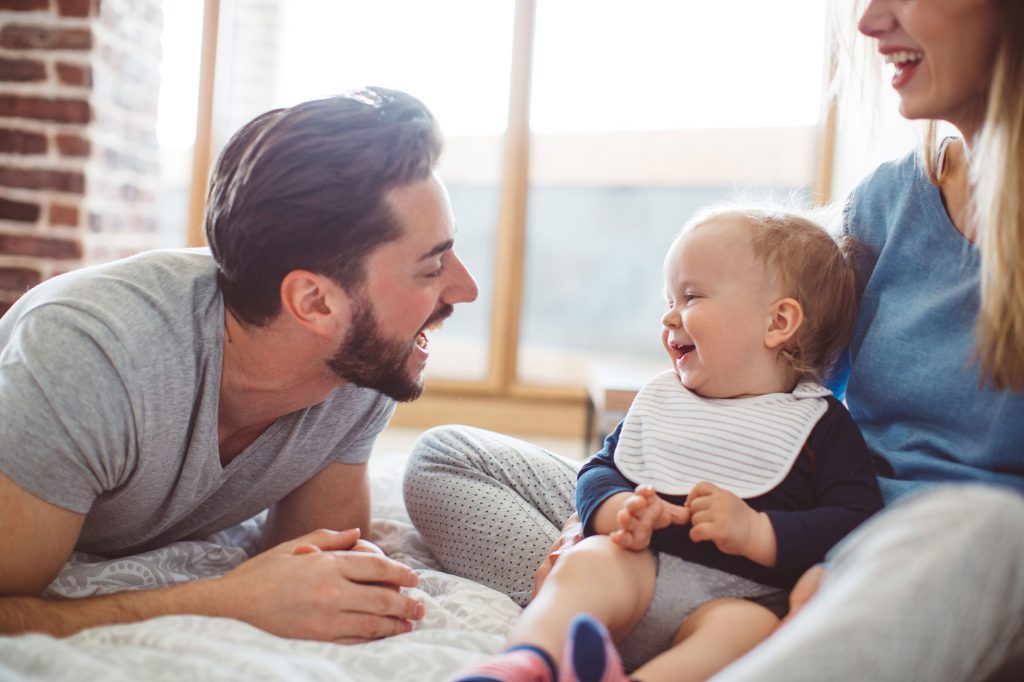
 Listen to this playlist on Spotify
Listen to this playlist on Spotify
